#episodes that never were
Photo
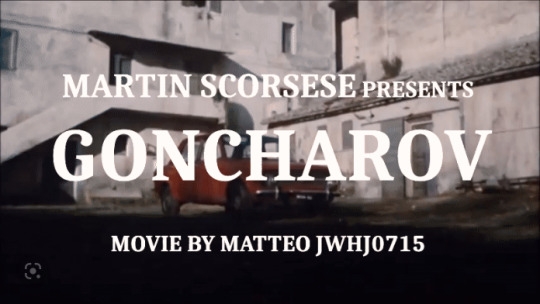
Goncharov
Why the hell is an MST3K blog rising from the dead to review a forgotten Martin Scorcese film? I'd never heard of this movie until it suddenly became a meme, but I had a day off work and I figured I might as well see what all the fuss was about. Now I want to talk about what I saw, and this is the only movie blog I have, so I'm doing it here.

Ivan Goncharov is the biggest, baddest motherfucker east of the iron curtain, richer than a tsar and colder than a Siberian winter. He's got a beef with Neapolitan mafioso Mario Giglioli, so he heads to sunny Italy to confront him in person. His closest confidante, Andrey, thinks it's suicide to do this on Giglioli's home turf but accompanies Goncharov anyway out of loyalty. What follows is a two-hour dick-measuring contest as Goncharov and Giglioli try to out-intimidate each other, culminating in an orgy of gunfire where only one will be left standing... and this is the kind of movie where you can't take it for granted that it'll be the guy whose name is the title.
That's the ostensible plot, anyway. What makes Goncharov a far more interesting film than such an outline might imply is that the argument between the mobsters is just a backdrop. Having set up Goncharov's hard as steel, cold as ice reputation in the first act, the movie then sets about deconstructing it. Goncharov goes from a terrifying figure devoid of all morality to a tragic antihero, a man who has come to believe his own hype so completely that he can no longer let himself be human.
This is demonstrated mainly by watching the breakdown of his relationships over the course of the tense three days in Naples. The most important person in Goncharov's life is Andrey, the only one he comes near being vulnerable with. Their relationship is depicted as very touchy-feely in a literal sort of way, with Andrey helping Goncharov with his coat and shoes, lighting cigarettes for him, and touching his shoulder or arm as Goncharov confides in him. The framing emphasizes these touches in a very homoerotic way, and I don't think I've got my tumblr goggles on here. These guys have fucked.
As Goncharov becomes more and more obsessed with being tougher and more ruthless than Giglioli, whom he sees as an effeminate softie, Andrey tries to persuade him that the other man is not worth this sort of obsession. Whatever Giglioli did to insult Goncharov (we never find out), Andrey is of the opinion that they should just leave a dead horse in the asshole's bed and move on. Goncharov's pride will not allow him to do that, and the less subtle Andrey is in his attempts to dissuade him, the more Goncharov pushes him away, finally abandoning him entirely. The tragedy of the ending comes from the fact that Andrey refuses to abandon Goncharov in turn.
We also see Goncharov with his wife Katya. He is frequently cruel to her, and she tolerates it because he gives her expensive gifts and because she is seeking a vicarious mending of her relationship with her abusive father - she was never able to earn his love, but perhaps she can earn Goncharov's. This is doomed to failure, as much because of Goncharov as because Katya doesn't actually want it to succeed. Nursing a black eye, Katya pours her heart out to a bartender, Sofia, who tries to help her escape... but this cannot work out, either. As Katya herself says, she doesn't know who she is without her issues.
I am pleased to note, by the way, that every single major character in the movie is named and I can remember them all, which is a bit of a treat for me (I need to watch good movies more often). The only exception is Goncharov himself. The end credits list him as Ivan, but nobody ever calls him that, not even Andrey or Katya. In a flashback scene with his parents, neither calls him by name. This flashback, fascinatingly, is filmed in the first person, looking through Goncharov's own eyes. We are not allowed to see him as a younger, softer man. He refuses to show that side of himself even in the privacy of his memories.
These quieter moments contrast with scenes of ever-escalating brutality, as the Russians and Italians try to force each other to back down by the murder of underlings. The fact that it is literally a contest, and that Goncharov is aware of this and describes it as such, makes the worsening violence ever more meaningless. The death of Giglioli's confessor is particularly awful, and the way Goncharov's goons treat the chapel has to be ten times worse if you're Catholic (fun fact: this scene is apparently removed from the Italian version on Netflix, which must make what Andrey says while waiting for the train into a hell of a non sequitur).
At the climax, the two really can't do anything but kill each other, because it's the only place left to go. Giglioli's priest and mistress are dead. Goncharov's men are almost all dead or out of action, and Goncharov believes Andrey to be dead. The initial insult, whatever it was, is no longer relevant. They have pushed each other to a place where reconciliation is unthinkable. Whoever blinks first loses, but both have already lost so much that victory means nothing. Worse, each recognizes that the other is in the same position, and neither can acknowledge it.
This means Goncharov can also moonlight as an examination of violence in media. Why do movies showcase violence, and why do we watch it? The initial posturing serves a purpose - Goncharov wants Giglioli to know he's here to personally demand an apology, and Giglioli wants Goncharov to know he's outnumbered and should quit while he still can. But once it becomes an exercise in one-up-manship, the 'messages’ vanish and the men are now killing for the sake of killing. Violence in movies can often be gore for gore's sake, pulling out more and more stops in the effort to shock an audience that has been desensitized by years and years of this. That is what Goncharov and Giglioli are doing to each other. Truly distressing moments like the fate of the priest, or what Giuseppe "Icepick Joe" Cozzolino (dressed as a maid!) does to Sofia when he assumes she's Katya because she was in Katya's hotel room, make us wonder why we're watching this - and the mobsters wonder why they're doing it.
In the end, it's all just a blood-soaked version of the sunk cost fallacy. Goncharov had come too far in his vendetta to stop now. Andrey has followed him too far to turn back. Katya has been married to him too long to leave. Of course, any of them could quit at any time and escape from this terrible spiral, but they are unwilling to entertain the possibility. Like Goncharov himself, Andrey and Katya are prisoners of the identities they have built for themselves, and because their identities are so tied to him, they have to go down with him.
One thing I haven't seen a lot of discussion of on tumblr is the way the film uses the contrast in climate. Goncharov in Moscow is in his element. When you see his breath in the wintry air it's as if he's breathing smoke like a dragon. While other people huddle in the cold he stands up straight and tall. In Naples, on the other hand, he is out of place. He wears lighter clothing, but continues to choose long coats and upturned collars, while Giglioli goes around with his shirt unbuttoned. This should serve to emphasize Giglioli's home field advantage and yet, as we see through Goncharov's eyes, they just make Giglioli look soft. His apparent weakness makes Goncharov want to appear even stronger.
On a related note, it is interesting to me how sunlight is treated as something very unfriendly. In Russia, it glitters on ice crystals in the air and lights up condensation, harsh and white and giving no warmth whatsoever. In Italy it bakes and shimmers on stone and asphalt, casting harsh, black-edged shadows and emphasizing creased brows and frowning mouths. Outdoor scenes are, as far as I can tell, always hostile interactions. Even indoor scenes in natural light: the priest dies with harsh sunlight streaming in through the broken chapel window. When characters are softer with each other, it is always under artificial illumination. Sunlight is too bright, too revealing. People like this need some shadows to hide in.
Did I like this movie? That's a tough question. It's not really the type of movie you 'like'. It's definitely powerful and well-constructed, thoroughly absorbing and all that. There's a taste of Greek tragedy in the inevitability of the ending and the way Goncharov is eaten alive by hubris. But I wouldn't say I liked it. The characters are all terrible people whose arcs involve them getting worse, and the whole thing feels deeply claustrophobic, as if I, too, am trapped in Goncharov's downward spiral. When characters realize their mistakes, it is only when it's too late to correct them - but only in their own minds. It's a very pessimistic story, about human beings who are overcome by the very worst parts of themselves.
Is Goncharov deserving of all those glowing reviews? Yes. Was it unfairly snubbed at the Oscars because the academy was turned off by the violence? Probably. Will I ever watch it again? Fuck, no.
Excuse me, I have to go watch some Pixar movies if I ever want to smile again.
#mst3k#reviews#episodes that never were#goncharov#70's#there are horses in this movie#unreality#in case you've been on twitter or something all day#this movie doesn't exist.#i read six text posts and pulled this out of my ass at one in the morning
443 notes
·
View notes
Text

made a chart of the straw hats' skin tones with the colors being screencapped directly from the episodes, to show how much they've lightened.
this is more than just an "artstyle change" or "design evolution" or "just the timeskip" this is blatant racism/colorism. it's fucking ridiculous and i don't understand how toei is continuously getting away with it
please reblog btw, i think this is something people should see
#didnt include chopper/brook/jinbe for obvious reasons but i think even choppers fur has gotten lighter brown#even nami and sanji the characters who were pale from the beginning have gotten PALER#fucking INSANE how much usopp has lightened when you look at it side by side like this. and franky too which i never really took note of#the sabaody colors are screencapped from episodes 217/218/219 by the way#i just forgot to record exactly which episode theyre from so i just labelled them as sabaody#and by “screencapped directly” i mean like i literally screenshotted the characters and zoomed way in#and cropped a square of their face/arm#and made sure it was in average outdoor lighting not mood lighting/dramatic lighting so this is as accurate as possible#one piece#usopp#luffy#franky#nico robin#nami#sanji#vinsmoke sanji#monkey d luffy#zoro#roronoa zoro#casey posts#toei animation#toei#straw hat crew#straw hats#one piece discourse
10K notes
·
View notes
Text

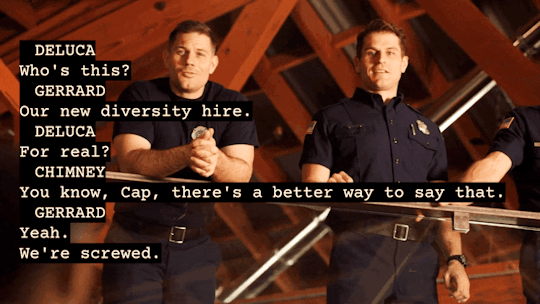

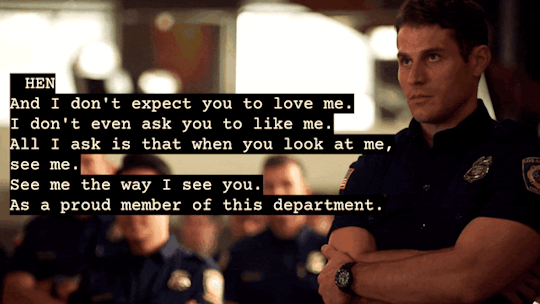




2.12 Chimney Begins - 2.09 Hen Begins - 2.16 Bobby Begins Again - 7.04 Buck, Bothered and Bewildered
Tommy's family arc
#911#911edit#911 abc#911 show#911 spoilers#911 season 7#tommy kinard#evan buckley#evan 'buck' buckley#kinley#bucktommy#kinkley#tevan#pick a ship name you guys and thanks for picking tevan the most correct name#anyway analysis time!#looking back with Modern Knowledge tm about why tommy acts the way he does in the past... babygirl you were so closeted I'm so proud#babygirl was back there getting into narnia#he was so resistant to letting go of the pseudo-family he'd found at the 118 in chimney begins#even tho it was a good old boys club that he knew he really didn't fit into he was making himself fit because at least it was something#but then he let chimney in and then hen came around and he saw a very queer person being openly queer and not giving a fuck what they think#and I think his behavior in that episode was trying to support hen as much as he could without outing himself#because like. how do you give up years of relative safety with people who do care about you they just won't like you anymore if you're *you#then he meets buck in s7 which is like 10-20 years later timeline is fake and he's like oh. this is what unconditional family is#and he's like oh. maybe I can come back. maybe I can be part of this again somehow. maybe we've both grown enough#or at the very least he'll be close to something he never believed would really happen for him#rant over tevan my beloved tim minear pillow cold both sides god bless#my edits
2K notes
·
View notes
Text
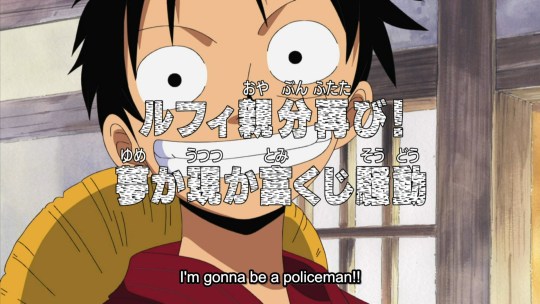

#one piece#luffy#I loved the edo period filler episodes cuz they were really fun and the designs were great#but luffy being a policeman was just so.... ?????#there could be a million different AUs and I would never imagine him being a cop in any of them
2K notes
·
View notes
Text
At the end of the day, they're still just little kids making noise outside his office.
#I am unwell#the sibling moments here were so strong and like. its because they've never really grown up. it's a game. king of the hill. kendall loses#and like a little boy he shouts and begs and bullies. but it's time for the grownups to talk now. and he just isn't one. they're all#bullshit. they're not serious people#and romans the only one to even kind of realize that. he's literally dressed like a kid for half the episode. he knows its all fake and tha#means he's the closest to actually moving on#kendall roy#shiv roy#siobhan roy#roman roy#logan roy#succession finale#succession season 4#succession
5K notes
·
View notes
Text
Hazbin memes/spoilers bc these episodes were NUTS???

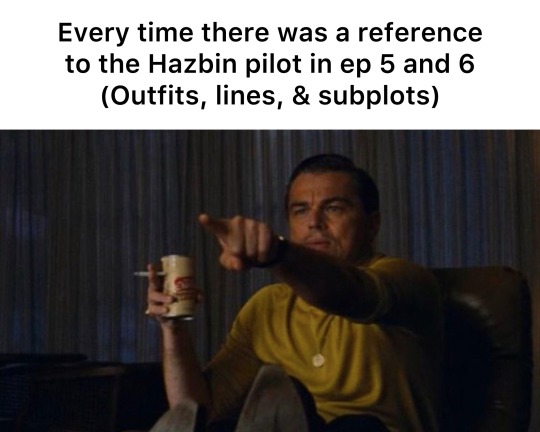



LOST my mind and then the AUDACITY to end on a cliffhanger after Charlie collapsed on her knees in despair about Vaggie🤚😭
#ANGEL GROWTH THO WE LOVE TO SEE ITTT#the alastor lore???#the lucifer and lilith stuff????#CHARLIE AND HER DAD???#EVERYTHING with vaggie????#ALL of heaven???#cherri bomb was freed#was she always Australian and i never realized LMAOO#LITERALLY THESE ENTIRE EPISODES WERE NUTS#AND I LOVED IT??? LMAO#on the floor sobbing for next week#hazbin hotel#hazbin hotel spoilers#charlie morningstar#hazbin hotel charlie#hazbin hotel vaggie#chaggie#lucifer morningstar#hazbin hotel angel dust#hazbin hotel alastor#hazbin hotel nifty#hazbin hotel sir pentious#hazbin hotel cherri bomb#hazbin hotel husk
2K notes
·
View notes
Text
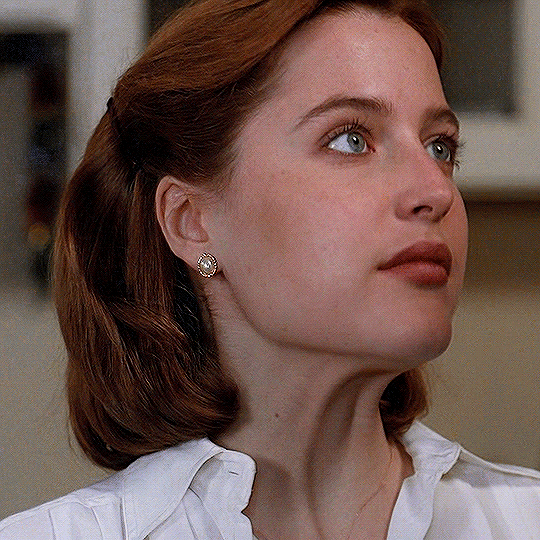

THE X FILES | Beyond the Sea (1.13)
#the x files#txf#txfedit#xfilesnet#dailytxf#dana scully#1x13#beyond the sea#mine#kallypsos#usersilene#hope it's ok that i tag y'all i've never tagged anyone directly lol#anyway yeah i know this scene and this episode has been giffed to death but i don't care!!!!#she's so beautiful and her eyelashes are so long i couldn't resist#my hands were tied!!!!
1K notes
·
View notes
Text
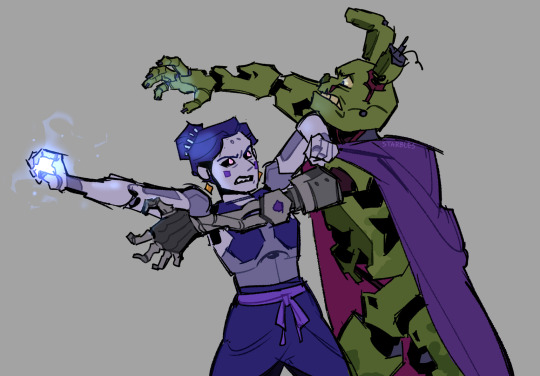
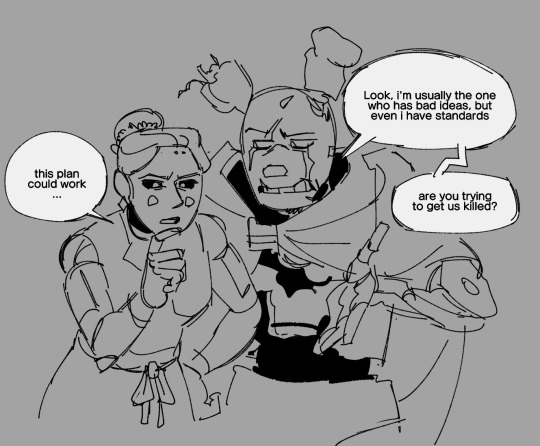
a glimpse of what their early dynamic looks like
#i'm posting these in this blog first because i think its very silly#i could talk about them if you want me to#*ignores if you want to hear me or not and simply starts talking*#I think at some point during development i stopped thinking about them as 'mrs. afton and mr. afton'#it's funny knowing they were never supposed to meet at all#Ballora belongs to sister location. which takes place some time around 1983 or 1985 (Behind The Codes has its own canon timeline)#Fazbear's Fright happens in 2023. which is 30-40 years apart#but then we have Ultimate Custom Night. Everyone is trapped together in the same location seemingly with no chances of escaping.#if you think about it. they're just a part of this huge scrupulous plan#no one is predestined to anything. it's certainly not different for Springtrap and Ballora.#they are just... there. like everyone else#they are all linked in some way. all the clues tie back to the Missing Children Incident.#but... you're probably right. maybe there's more to it#maybe there is A Link rather than a link. you know what I mean?#Episode 3 will explore this and much more#for now. have these two idiots trying to figure out how to get out of trouble#behind the codes#fnaf#fnaf behind the codes#five nights at freddy's#ballora#springtrap#fnaf btc#my art#starbstalks
3K notes
·
View notes
Text

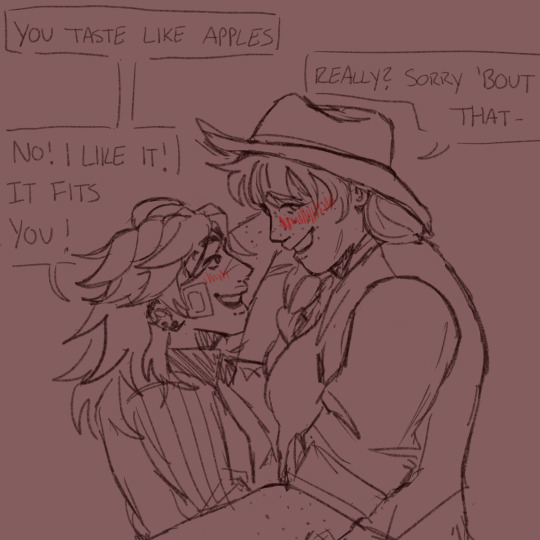
you know what. get appledash'd
(aka i watched non complete clause for the first time and im still mad about it)
#mlp#my little pony#applejack#rainbow dash#appledash#art tag#I HATED THAT EPISODE SO FUCKING MUCH#me the entire episode: THEY WOULD NOT FUCKING SAY THAT#they would never! i watched it with my friend and we literally paused 1 minute in because we were already mad#i pretend i do not see it that episode does not exist#credit to emily for the idea 😌
859 notes
·
View notes
Text

#doctor who spoilers#wild blue yonder#Dw spoilers#The doctor🤝me#If I put it in a box in my brain and never open it it never actually happened#Some of the visuals in this episode were definitely A Choice!#I will unfortunately be thinking about Way Too Big Hands for some time
692 notes
·
View notes
Photo

Future Force
I'm so glad Wizards of the Lost Kingdom II had David Carradine in it. It opens up such a spectrum of terrible 80s and 90s movies for inclusion in my blog. This one also features Robert Tessier (Thor in Starcrash) and was produced by David Winters, of Space Mutiny fame. There is gonna be so much hair in this movie.
It's the Dystopian Future, and Justice as we know it has ceased to exist. The police have been disbanded and replaced by bounty hunters working for COPS – Civilian-Operated Policing Services. One of these hunters is John Tucker, whose secret weapon is a robo-gauntlet that shoots lasers as well as giving the wearer super-strength. He is the first to capture news anchor Marion Simms, who has an especially large bounty on her head after an accusation of treason, but competition is fierce and he's soon on the run with her as every hunter in the state tries to take his prize. Obviously, he's gonna end up kissing her and helping her overthrow the evil CEO of COPS... I mean, this is a movie, after all.
There are a great many things in this movie that Jonah and the bots would have had an absolute field day with. There's the curious fact that the director likes to introduce characters, both men and women, by showing us their feet. There's the dude who is definitely leaning out of the helicopter that is in the air, and not sitting in a different one that's still on the ground with a black curtain behind it. There's the desperate car chase set to a feel-good love ballad. The way every punch produces the exact same sound effect. That all the bounty hunters wear jean jackets and look like a shitty metal band, or perhaps a more denim-y version of the cyborgs from Future War.

The thing I suspect they'd focus on most, however, is the fact that none of the men in this movie look like they have ever worn deodorant in their lives, even the ones who are supposed to be rich and privileged. I can smell them through my computer screen and the ones who don't just smell like Unwashed Dude smell like the gallons of cologne they would have to wear to cover it up. The least smelly-looking guy in this movie is literally the basement-dwelling nerd.
What's mostly wrong with Future Force, however, is the absolutely egregious writing. Yet again we seem to have a film made by people who knew what an action movie is supposed to consist of, but not why those parts are present or what they mean. Important things are not established. Things that are established are not paid off. And the film has nothing to say about the tropes it employs, it merely parades them across the screen one at a time and then forgets about them – like the Budweiser truck that interrupts the 'Drive into the Sunset' finale with an abrupt product placement.
Much like The Vindicator, which I watched a while back, Future Force is attempting to cash in on 1987's Robocop. Unlike The Vindicator, it doesn't understand any of that movie's themes. Robocop was about police brutality and society's obsession with depicting it in film. Murphy eventually rejects this role as a mindless killing machine and finds ways around his programming to do the right thing – only for the sequels to totally discard that character development so they could make more gory sci-fi action movies. The Vindicator wasn't interested in the police violence thing, but Future Force is. Its entire premise is that law enforcement had become so corrupt that it had to be disbanded.
Did this produce a safer society? Probably not, since we still have a lot of armed assholes wandering around shooting anybody accused of a crime, the only difference being that they're wearing denim instead of police uniforms. The system is infinitely exploitable, too, as illustrated by the CEO of COPS, an entirely nondescript 80s villain named Adams, putting out a hit on Simms when she announces her intention to expose his own crimes. Simms' news broadcast promises to examine the effect the new system has had on society and the problems with it, but of course we never see the subsequent episodes because she has to go on the run. When she meets Tucker, she calls him an 'animal' and complains about the constant violence on the streets.
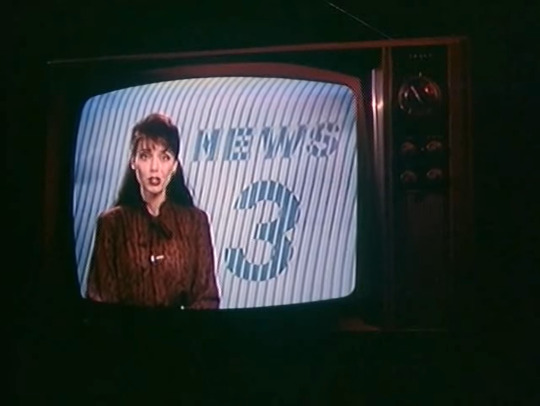
But none of this ever goes anywhere. We later learn that Adams' anger with Simms is actually completely misdirected. He's literally killing the messenger, because Simms isn't the one who was investigating him. She's just the anchorwoman, who sits in front of the camera and reads the script she's given, and hadn't even watched the video tape Adams so desperately wants back. This could lead into something where Tucker and Simms have to find the people who are actually in the know and enlist their help, but it doesn't. Instead, the whole thing is thrown away. It was never anything more than an excuse for the movie to happen. Adams never even finds out that Simms isn't his real enemy.
The opening narration and the news broadcast both try to make the point that the new system isn't justice. We see criminals and people who have been labelled criminals summarily executed without any evidence of due process. A couple of people mention things like judges, but we never see one, and they seem mostly irrelevant. This makes us expect that we will see a restoration of justice. At the beginning of the movie we saw Adams murder the previous CEO of COPS in order to take his place... presumably it's something related to that on the video tape, but as I said, we never find out. In a movie about justice, we therefore ought to see Adams' crimes exposed and him found guilty by a judge, the very person he sought to bypass.
That's not what happens, though. Instead, Tucker has his pet hacker tell the main COPS computer that there's a bounty out on Adams, and the other hunters gun him down. This is supposed to be ironic, as it's Adams' own methods turned against him, and I guess it is, but it certainly doesn't feel like a victory of good over evil. It's just violence begetting more violence again, and there's not even a hint of anybody intending to overhaul the system so that justice can actually be done and people can feel safer. It ends the movie, but not in a remotely satisfying way.
The other instance of just plain terrible writing here is the fact that Tucker and Simms are saved by a deus ex machina not once, but twice. The first time is when a woman named Roxanne, who also works for COPS, appears out of nowhere to shoot a guy who was about to kill them. She tells Tucker she did it because she has a crush on him and lets him go... and then another dude pops out of nowhere to kill her, so that this incident really has no plot consequences. Roxanne could have been a new ally, a double-agent, or a complication to the romantic subplot, but no, she's just a lazy way to move the characters on to the next chase scene.
This is the one where they're fired on by the man who is totally looking down on them from a real helicopter... and he nearly gets them, but then a man with a grudge against Adams materializes at the side of the roaf, pulls a rocket launcher out of his ass, and blows up the helicopter! This, too, goes nowhere. We've only seen this dude once before, and we will never see him again. How did he even know any of this was going on? We have no idea.

The only time Future Force really pays something off in a satisfying manner is the robo-gauntlet. For the most part this device is criminally under-used. Tucker keeps it in the boot of his car, so he can't get at it during the chase scenes when it would have been very useful. Early in the movie, however, the nerdy guy places the gun on the mantelpiece by telling Tucker he really ought to try using the robo-gauntlet's remote control sometime. I therefore spent three quarters of the run time eagerly awaiting the reveal and hoping the gauntlet would fly despite the movie having apparently spent what should have been the effects budget on strippers.
And as it turned out, the film-makers were at least slightly smarter than I thought they were, because it does fly! Not only that, but it beats the shit out of one of Adams' lackeys in a scene that is almost (though not quite) funny enough to make the rest of the movie worth it. Honestly, every appearance of the gauntlet is fairly amusing, as its abilities do not even try to look like they obey the laws of physics, but the remote control scene is far and away the most entertaining thing in the whole film.

Sadly, it's not quite enough to redeem the rest of Future Force. The movie set out to be a lazy cash-in and never makes any attempt to rise above that. The result is so miserably bad it's almost unwatchable, which of course means it would have made for some stellar MST3K.
39 notes
·
View notes
Text
Ghosts’ Larry Rickard Explains Why They Chose the Captain’s First Name
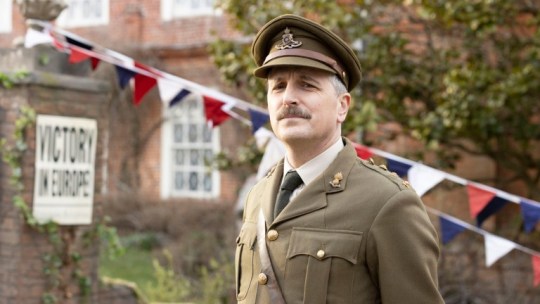
Photo: Monumental,Guido Mandozzi
It couldn’t be a joke. That was one rule laid down by the Ghosts creators when it came to choosing a first name for Willbond’s character. Until series five, the WWII ghost had been known only as The Captain – a mystery seized upon by fans of the show.
“It was the question we got asked more than anything. His name,” actor and writer Larry Rickard tells Den of Geek. “Once we got to series three, you could see that we were deliberately cutting away and deliberately avoiding it. We were fuelling the fire because we knew at some point we’d tell them.”
In “Carpe Diem”, the episode written by Rickard and Ben Willbond that finally reveals The Captain’s death story, they did tell us. After years of guessing, clue-spotting and debate, Ghosts revealed that The Captain’s first name is James. At the same time, we also learned that James’ colleague Lieutenant Havers’ first name was Anthony.
The ordinariness of those two names, says Rickard, is the point.
“The only thing we were really clear about is that we didn’t want one of those names that only exists in tellyland. It shouldn’t be ‘Cormoran’ or ‘Endeavour’. They should just be some men’s names and they’re important to them. The point was that they were everyday.”
Choosing first names for The Captain and Havers was a long process not unlike naming a baby, Rickard agrees. “It almost comes down to looking at the faces of the characters and saying, what’s right?”
“We talked for ages. For a long time I kept thinking ‘Duncan and James’, and then I was like ah no! That would have turned it into a gag and been awful!” Inescapably in the minds of a certain generation, Duncan James is a member of noughties boyband Blue. “Maybe with Anthony I was thinking of Anthony Costa!” Rickard says in mock horror, referencing another member of the band.
Lieutenant Havers wasn’t just The Captain’s second in command while stationed at Button House; he was also the man James loved. Because homosexuality was criminalised in England during James’ lifetime, he was forced to hide his feelings for Anthony from society, and to some extent even from himself.
In “Carpe Diem”, the ghosts (mistakenly) prepare for the last day of their afterlives, prompting The Captain to finally tell his story. Though not explicit about his sexual identity, the others understand and accept what he tells them – and led by Lady Button, all agree that he’s a brave man.
Getting the balance right of what The Captain does and doesn’t say was key to the episode. “It wasn’t just a personal choice of his to go ‘I’m going to remain in the closet’,” explains Rickard. “There wasn’t an option there to explore the things that either of them felt. That couldn’t be done back then – there are so many stories which have come out since the War about the dangers of doing that.
“We wanted to tell his personal story but also try to ensure that there was a level at which you understood why they couldn’t be open, that even in this moment where he’s finally telling the other ghosts his story, he never comes out and says it overtly because that would be too much for him as a character from that time.
“He says enough for them to know, and enough for him to feel unburdened but it’s in the fact that they’re using their first names which militarily they would never have done, and in the literal passing of the baton”.
The baton is a bonus reveal when fans learned that The Captain’s military stick wasn’t a memento of his career, but of Havers. As James suffers a fatal heart attack during a VE day celebration at Button House, Anthony rushes to his side and the stick passes from one to the other as they share a moment of tragic understanding.
“From really early on, we had the idea that anything you’re holding [when you die] stays with you. So it wasn’t just your clothes you were wearing, we had the stuff with Thomas’ letter reappearing in his pocket and so on. And the assumption being that it was something The Captain couldn’t put down, it felt so nice to be able to say it was something he didn’t want to put down.”
Rickard lists “Carpe Diem”, co-written with Ben Willbond, among his series five highlights. He’s pleased with the end result, praises Willbond’s performance, and loved being on set to see Button House dressed for the 1940s. He’s particularly pleased that a checklist of moments they wanted to land with the audience all managed to be included. “Normally something’s fallen by the wayside just because of the way TV’s made, it’s always imperfect or it’s slightly rushed, but it feels like it’s all there.”
Rickard and Willbond also knew by this point in the show’s lifetime, that they could trust Ghosts fans to pick up on small details. “Nothing is missed,” he says. “Early on, you’re always thinking, is that going to get across? But once we got to series five, there are little tiny things within corners of shots and you know that’s going to be spotted. Particularly in that very short exchange between Havers and the Captain. We worried less about the minutiae of it because you go, that’s going to be rewound and rewatched, nothing will be missed.”
The team were also grateful they’d resisted the temptation to tell The Captain’s story sooner. “We’d talked about it every series since series two, whether or not now was the time, but because he’s such a hard and starchy character in a lot of ways you needed the time to understand his softer side I think before you had that final honest beat from him.”
“What a ridiculously normal name to have so much weight put on it for five years,” laughs Rickard fondly. “Good old James.”
From Den of Geek
#bbc ghosts#bless you larry for doing all these den of geek interviews#I wonder if they just did one marathon session with him#inside ghosts was kind of disappointing this week#I guess Ben just wants to let the episode speak for itself and you're like yes but I would like to hear you talk about every detail#trust me we will be interested#long post#I really thought they loved the joke of nearly saying the Captain’s name so much that they'd never reveal it#so it's so lovely that they were like no this is not a joke name; he's a real man with an ordinary name#and we are going to tell you that in the most devastatingly romantic way#I am eating my words and they are delicious with that spread on top#also 'that's going to be rewound and rewatched' = 'I know you people are loopy so here is content specifically for you'#bbc ghosts spoilers
897 notes
·
View notes
Text
A frustrating development with the growing lack of reading comprehension I've personally noticed is an emerging fervor of insisting things aren't canon unless they are explicitly stated beyond all reasonable doubt.
I can not emphasize enough how harmful a mindset this is to have. Yes, it's wonderful to have characters outright say "I'm trans," but to deny a character's identity for not saying that is dangerous.
Plenty of real people prefer not to use specific labels. Historically, people didn't have our modern terms or modes of expression. Many modern cultures don't use these terms, either, and plenty of people within those that do can't safely openly identify.
If the only representation you accept as canon is within modern (and let's be honest, wealthy white able-bodied American) standards, then you are denying yourself and others a huge amount of representation and seriously limiting the media around you.
#remembering how people were like hmm its not actually canon that Steve is trans and adam is nonbinary...#steve doesnt fucking know what 'trans' is hes an unhoused time traveling cowboy like!!!#after an arc. about werewolves. and how people become werewolves because theyre unhappy with their lives.#especially specifically regarding their body/gender#and how adam explicitly says 'your family never saw you as a man'#AND THEN FOLLOWS IT UP. with referring to Steve as 'the man who chose'#like for fucks sake#you are being deliberately and willfully ignorant if you say its not canon.#your ideas of transness are extremely extremely limited if it doesnt include people who dont use the word.#god. ugh. ive been annoyed by this since that episode came out#dont even get me started on how people barely noticed adam is nonbinary.mm#they said they dont wanna be called a boyfriend. come on!!! come on!!!!#how can i make it clearer without them saying shit they woildnt say and have no context for!!!!#scream.#anyways.#delete later lol im just frustrated again.#im not even sure i worded this how i wanted to
236 notes
·
View notes
Text



ALICENT'S REBELLION
#house of the dragon#alicent hightower#alicenthightoweredit#hotd#hotdedit#houseofthedragonedit#welighttheway#gameofthronesdaily#dailyhotdgifs#mariana does things#*hotd#photoset#must a gif have purpose? is it not enough to see a beautiful face¸ huge?#was rewatching this episode on the weekend and gosh this moment is so good#emily carey is such a star. she acts best when she's paired against rhys ifans#i think this is the first time alicent consciously decides to separate herself from otto's wishes. this and in ep 9 when she finally#tell him their hearts were never one. this one is about her body (he's asking her if she will see the king that night!!) and in ep 9#about her mind. she has aegon now she will make all decisions now#the bloody fingers is so visceral to me lol 'how it feels to be represented on screen?' fucking awful thanks. why do you destroy yourself?
353 notes
·
View notes
Text



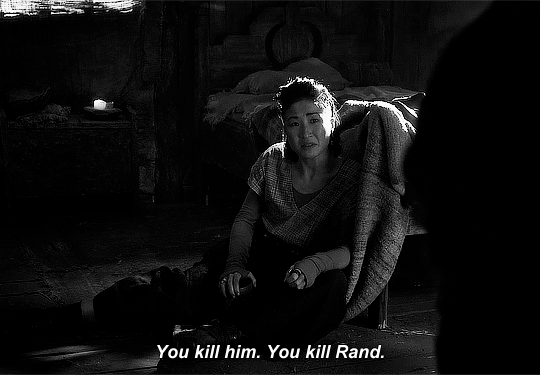
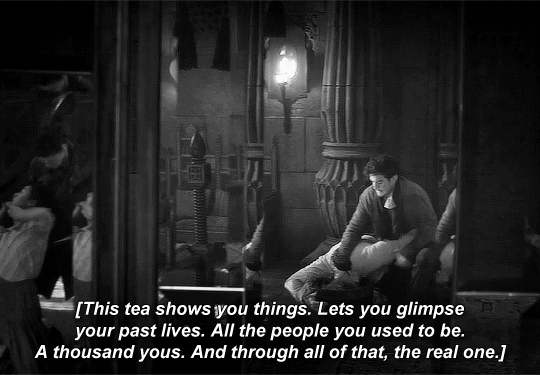

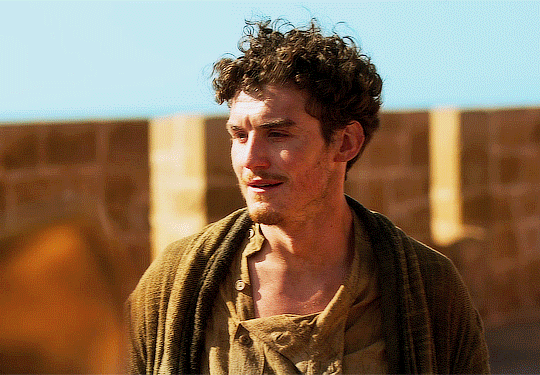


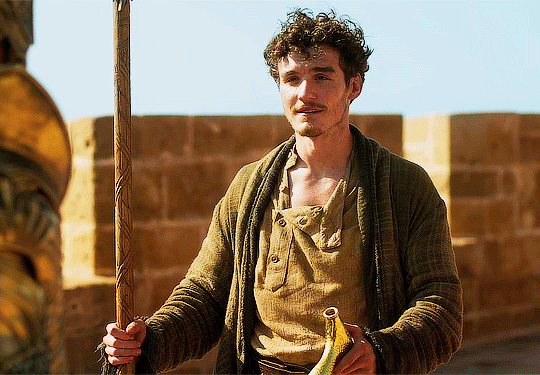
"This is some of the most fun work we’ve seen from the talented actor Dónal Finn all season; he gets that Mat is a depressive character, and so when Mat has moments of joy and elation — whether that’s simply reuniting with his friends or realizing he was born to be the leader of the most legendary assemblage of heroes ever known — he really makes them almost radiate inner sunlight. It’s just a pleasure to see Mat happy." –Vulture
#wotedit#wot#wot on prime#the wheel of time#mat cauthon#mine#wot show spoilers#I WILL NEVER BE OVER THIS EVER#man!!!!!!!!!!!!#'why have they spent 7 episodes harping on about mat being dark and not letting him succeed at anything'#so that i would BAWL MY FREAKING EYES OUT DURING THE HORN SCENE that's why!!!#LOOK AT HIS FACE!!!!! he's so happy so relieved so emotional!!!#it's amazing that they were able to take the massive unplanned change to mat's story caused by barney's departure#and not just work around it but create such a beautiful and moving character arc out of it#show!mat IS different from book!mat. different and BETTER. there i said it
425 notes
·
View notes
Note
Okay now i gotta know... As someone who only plays on English server but craves every bit of info on chapter 7....
What's the spoon scene? You mentiond it in the Sebek UM poster post.
no pressure tho, I'm just curious
oh, it's a little flashback scene to Silver and Sebek's first magic lesson (moving a spoon) -- it's one of the missable ones, so there's nothing plot-important in it, I just thought that one was really extra cute! 💚 Lilia does such a bad job of explaining how to use magic ("you go, like, SHWOO") that Malleus steps in and teaches them instead. so it's basically just Silver and Sebek staring intently (and audibly) at a spoon while Lilia flails around making noises and Malleus reminisces about how Lilia's teaching style has always been fascinatingly incomprehensible! pure sugary domestic fluff! just rubbing it in how absolutely terrible things have gotten :)
there are a bunch of cute flashbacks like that in the 7-81 and 7-83 maps; it's definitely worth getting them all if you are also fond of the diafam! I swear, this update has somehow managed to make me even more obsessed with this idiot dad and his three adopted dingbats and that should not have been possible.
#twisted wonderland#twisted wonderland spoilers#twisted wonderland episode 7 spoilers#twisted wonderland book 7 spoilers#like little silver and sebek's first meeting and silver being all 'totosama why is this kid i met ten seconds ago yelling at me :('#some things never change#GOD and the one where revaan saved lilia's nrc application for him has been living rent-free in my brain#we still know basically nothing about mal's dad but that one made me suddenly really like him#it's a nice little show-not-tell moment! a little gesture that says a lot!#i think lilia's feelings were unrequited but meleanor and revaan still really loved him!#i will NOT shut up about them you can't make me#if i can't slowly melt into a puddle over fictional characters then why am i even on tumblr
544 notes
·
View notes